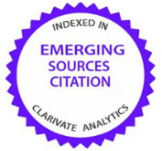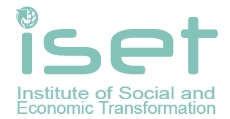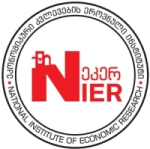Impact of Maritime Logistics on Statistical Characteristics of Foreign Trade Indicators of Georgia
Abstract
Introduction. Most of the cargo in foreign trade is transported by the sea. That is why the development of foreign trade relations without proper sea logistics is impossible. During the period of the pandemic, this was the area that functioned most successfully. In 2021, Georgia has increased the volume of exports, imports, re-exports, local exports by sea transport, while improving the structure of exports and imports.
Aim and tasks. The aim of the paper was revealing the trends of foreign trade by sea transport in Georgia. In the research process, general methods, as well as specific statistical methods were used, such as: observation, aggregation and analysis: mean values, ratios, variation analysis, dynamic sequences, selective observations, etc.
Results. Since 2016, sea transport has consistently held one of the leading positions in trade relations. In 2021 alone, maritime exports increased by 27% compared to the previous year. In period of 2016-2021, foreign trade in maritime transport increased by an average of 8.4% annually. In 2016-2021, Georgia mainly exports copper ores and concentrates, Ferroalloys, passenger cars and nitrogen, mineral or chemical fertilizers. Statistics in the dynamics over the years show that no change has taken place in the export commodity structure and in general, 73.7% of exports are local exports, which is an increase of 12.5 percentage points compared to 2019. The share of exports by sea in local exports was 57.3% in 2021, which is 2.8 percentage points higher than in 2019. During the whole study period, the volume of locally produced products exported by sea increased by an average of 18.1% per year. The average annual growth rate of re-exports by sea transport in Georgia in 2016-2019 was 140.9%, although in 2020 its volume decreased by 22.2% compared to the previous year, and in 2021 increased by 17% compared to 2020.
Conclusions. In conclusion, it can be said that sea transport is used quite actively in foreign trade in Georgia, a large part of foreign trade flows in the country are based on maritime transport. The statistical characteristics of foreign trade in the country have improved. The growth trend was maintained even during the period of severe pandemics and lockdowns, which once again emphasizes the advantages of conducting trade processes by sea and the need to use it for other purposes.
References
Abesadze, N., & Daushvili, M. (2016). Improvement of customs statistics in Georgia. Intellectual Economics, 13-17.
de Andres Gonzalez, O., Koivisto, H., Mustonen, J. M., & Keinänen-Toivola, M. M. (2021). Digitalization in just-in-time approach as a sustainable solution for maritime logistics in the baltic sea region. Sustainability, 13(3), 1173.
Gaganidze, G. (2018). In Current issues of Georgia's export potential management. Tbilisi: Iv. Javakhishvili Tbilisi State University Publishing House. Retrieved from http://press.tsu.ge/data/image_db_innova/gaganidze-2-dasakabadonebeli1.pdf
Gaganidze, G. (2019). Growth Of Export: The Need To Create New Export Products. Globalization and Business, 24-31.
Gelashvili, S., Abesadze,, N., & Abesadze, O. (2015). Expected Trends in Trade Relations Between Georgia and the European Union. Folia Pomeranae Universitatis Technologiae Stetinensis. Oeconomica, 37-46.
Goldwey. (2022). Retrieved from Gold Way Your Partner In International Transportation: https://goldway.com.ge
Jia, X., & Zhang, D. (2021). Prediction of maritime logistics service risks applying soft set based association rule: An early warning model. Reliability Engineering & System Safety, 207, 107339.
Nacional Statistics Office od Georgia. (2022). Retrieved from Nacional Statistics Office od Georgia: http://ex-trade.geostat.ge/ka
Palmieri, A., Parola, F., Song, D. W., & Baglieri, E. (2019). Integrating firms in a complex network: evidence from maritime logistics. International Journal of Logistics Research and Applications, 22(1), 64-77.
Panayides, P. M. (2006). Maritime logistics and global supply chains: towards a research agenda. Maritime Economics & Logistics, 8(1), 3-18.
Papava, V. (2020, 08 06). Georgia’s European Way During the Period of Pandemic Deglobalization. Retrieved from Georgian Foundation for Strategic and International Studies (Rondeli Foundation) : https://gfsis.org.ge/blog/view/1091

This work is licensed under a Creative Commons Attribution-NonCommercial 4.0 International License.
If the article is accepted for publication in the journal «Economics. Ecology. Socium» the author must sign an agreementon transfer of copyright. The agreement is sent to the postal (original) or e-mail address (scanned copy) of the journal editions.






















